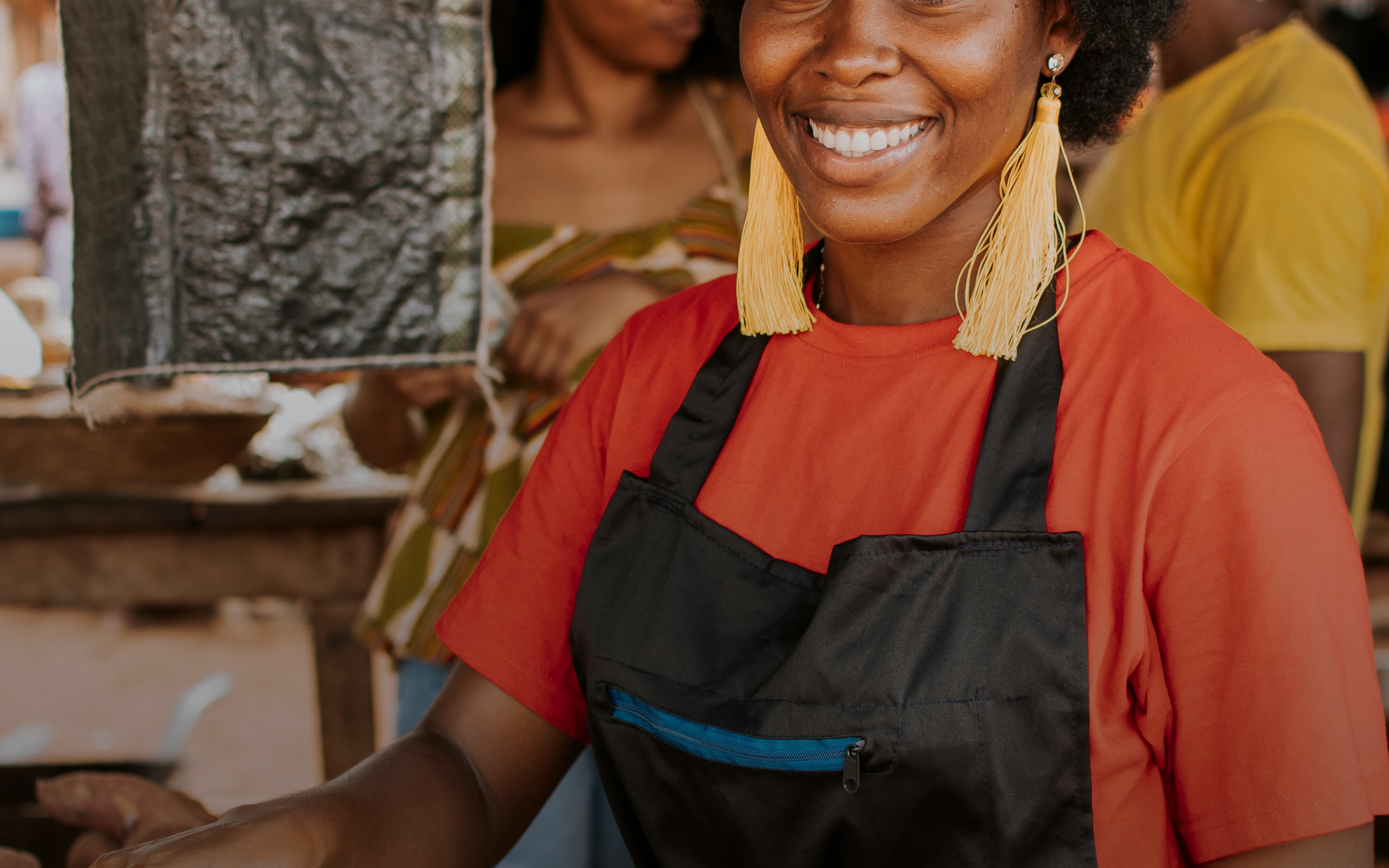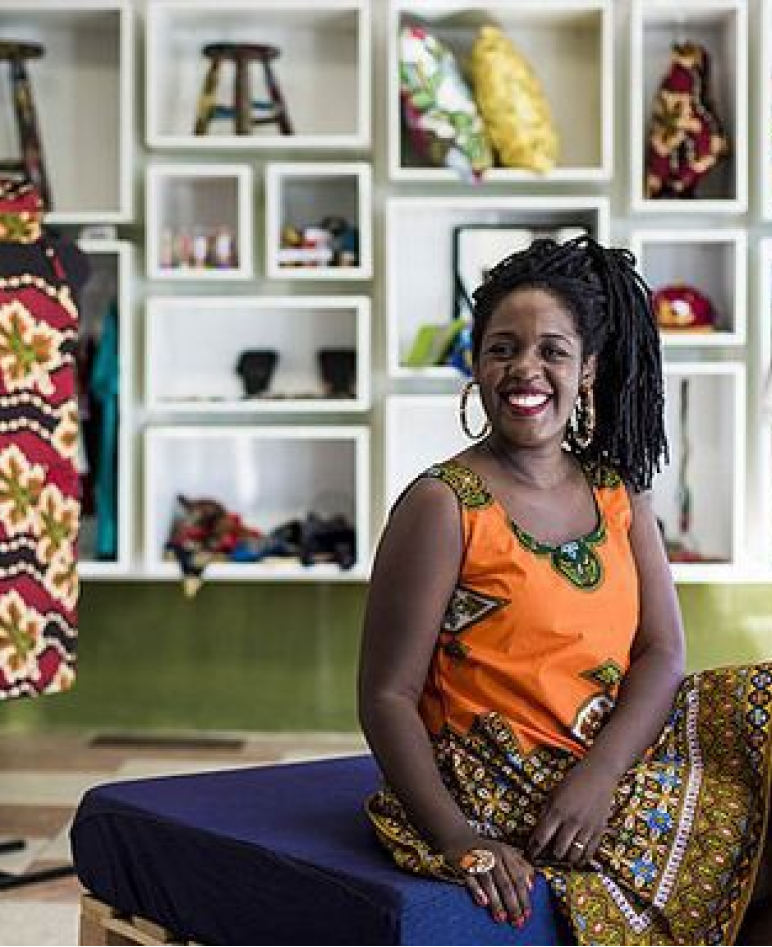WOMEN AND BUSINESS 2021
4 Mins. ReadArticle
DRIVING ECONOMIC INCLUSION IN
THE INFORMAL SECTOR IN AFRICA

4 Mins. Read
FREE.3 PAGESIntroduction
Africa is the world’s second largest and second most populous continent, after Asia, accounting for more than 12% of the world’s human population. The continent is also blessed with youthful population, Africa has the youngest population in the world, with 70% of sub-Saharan African under the age of 30, and more than half of this population being women (50.12%). Consequently, the continent is largely blessed with natural and mineral resources which if put into proper use with creative know-how, African nations should be at the forefront of the Global Economic Index.
Despite the perceived potentials in Africa, the continent still remains the poorest and least developed continent in the world. Several factors including lack of basic amenities, poor education quality, lack of quality data and regressive government policy can be partly attributed to the perpetual position of Sub-Saharan Africa at the bottom of the Global Economy Index.
This article seeks to examine women in the informal Africa economy, their potential and also driving economic inclusion. According to ILO, the informal economy refers to all economic activities by workers and economic units that are — in law or in practice — not covered or insufficiently covered by formal arrangements.

Potential of the Informal Sector
The Africa Development Bank reported that the informal sector is the major source of employment across Africa, accounting for 80.8% of employment in Sub-Saharan Africa and 62 per cent in North Africa. The dynamism of the informal sector in creating employment and value addition is particularly strong, representing about 80 per cent of the total labour force, and contributing about 55 per cent of sub-Saharan Africa’s GDP. The vibrancy of the informal sector is difficult to miss in African cities, street vendors are key in ensuring food security. Those who work in transport keep the city and the economy moving. And those operating in services are critical to the overall incomes and functioning of African cities. Furthermore, about 90% of the informal workers are women and youth, but the lack of social protection, skills’ upgrading and productive income often trap these groups into poverty and exclusion from economic growth and development, with only about 10 percent of operators benefiting from social protection schemes.
The urban informal economy is particularly common among youth (95.8% ages 15–24) and women (92.1%) and is an important contributor to poverty alleviation. Social protection like access to credit facilities, skills and digitization plays a key role for business owners and workers to build human capital, prevent the sale of productive assets in case of shocks, and promote savings to build resilience. Female informal cross-border retail trade, which is generally small and self-employed, amounted to 64 per cent of the added value of national trade in Benin, 46 per cent in Mali and 41 per cent in Chad in 2012. In addition,
the diversity of informal employment across countries is captured by a set of characteristics related to the type and location of activities, access and use of technology, access to credit, productivity levels, and contribution to social security.

Informal Economy during the Covid-19 Pandemic
Covid-19 lockdown adversely affected the informal sectors, with no access to social protection and inadequate savings to fall back on, the COVID-19 (coronavirus) pandemic lockdown made a lot of casual workers, hawkers and transport workers unable to work. This posed great threat to lives and properties of businesses and corporate entities as well as the vandalization of public infrastructures and facilities. A recent World Bank survey concluded that jobs in urban areas are particularly affected; during April-June 2020, 56.3% and 29.4% of urban respondents respectively in Nigeria and Uganda indicated that they stopped working because of COVID-19, against 39.2% and 11.1% in rural areas. Without assistance, many risk slipping into poverty. Also, living in informal settlements exposes them to increased health and social risks, further hindering their productivity.
Conclusion
The sub-Saharan Africa youthful population has a great potential in driving creative and innovative solutions that will improve lives of Africans and also speed up economic development in the region. Government in these countries need to formulate relevant policies that will promote innovations and empower small businesses. Such empowerment should see innovations like Blackbox thrive and promoted.
References
- UNITED NATIONS ECONOMIC COMMISSION FOR AFRICA (ECA), Contribution
to the 2015 United Nations Economic and Social Council (ECOSOC) Integration Segment, 2015. - MELIS GUVEN &RAPHAELA KARLEN, Supporting Africa’s urban informal sector:
Coordinated policies with social protection at the core, DECEMBER 03, 2020. - PwC 2020 MSME Survey
- FATE Foundation and Budgit MSME Survey 2021
- Augustin AO, 2018: The Crisis of Underdevelopment in Sub-Saharan Africa:
Multi-dimensional Perspectives; Journal of Political Sciences & Public Affairs
The Author(s)


Article
System Thinking...
Article
Impact of Women
